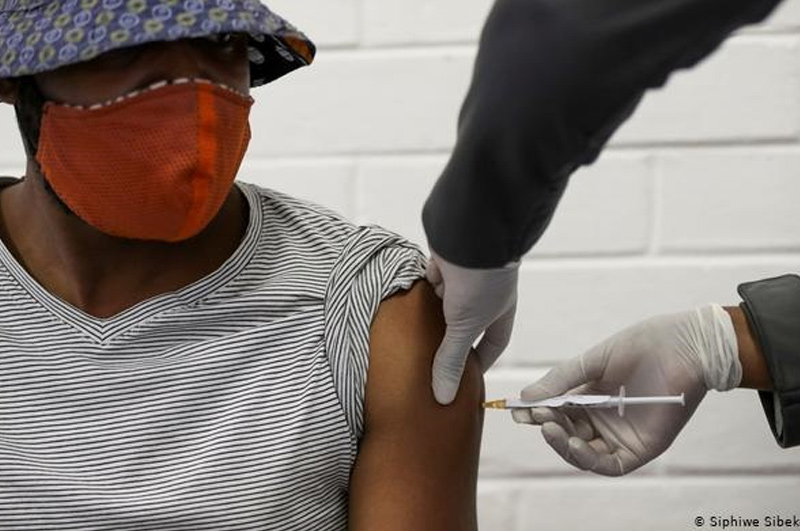

Nairobi, 13th June 2024 - The Nairobi Cervical Cancer Elimination and HPV Vaccination Convening, a pivotal gathering on health held from June 11th to 13th at the Radisson Blu Hotel, brought together a diverse group of faith leaders, health professionals, experts, community advocates, and policymakers.
United under the theme "Uniting Faith and Science against Cervical Cancer," participants addressed the pressing issue of cervical cancer in Africa, aiming to implement strategies that could eliminate the disease.
Recognising the immense burden of cervical cancer on African women, families, and economies, with approximately 126,000 new cases and 81,000 deaths annually, according to Global Cancer Observatory (Globocan), participants at the convening recognised this burden and committed to a comprehensive strategy encompassing behavioural change communication, HPV vaccination, screening, treatment, palliative care, and survivorship.
A key focus of the convening was the vital role faith leaders can play in influencing health behaviors and decisions within communities. Fr. Charles Chilufya, S.J., Executive Director and Board Chairman of AHETI, emphasised the importance of a multifaceted approach, including policy advocacy, raising awareness, offering psychosocial support, and empowering communities to meet WHO’s 90-70-90 targets. These targets aim for 90% of girls to be vaccinated by age 15, 70% of women screened by ages 34 and 45, and 90% of women with cervical disease to receive treatment.
Key discussions at the convening addressed the need to overcome cultural, logistical, and informational barriers that hinder access to essential health services. Enhanced collaborative networks were established, strengthening partnerships among faith-based organizations, health authorities, and community groups to bolster cervical cancer prevention efforts.
Key Outcomes and Commitments
Enhanced Collaborative Networks
New partnerships were established, and existing ones strengthened among faith-based organizations, health authorities, advocacy groups, and community organizations. These networks aim to improve the reach and effectiveness of cervical cancer prevention efforts.
Capacity Building for Faith Leaders
Workshops and sessions were conducted to equip faith leaders with the necessary knowledge and resources to advocate for behavioral change, HPV vaccination, screening, treatment, and survivorship. This capacity-building effort is expected to amplify the influence of faith leaders in promoting health behaviors.
Ramping Up Vaccination Efforts
A significant focus was placed on leveraging faith networks to increase HPV vaccination rates. Participants committed to enhancing public awareness to ensure widespread vaccine uptake, utilizing the extensive reach of faith-based organizations.
Expanded Screening Initiatives
Faith networks and leaders will broaden screening initiatives using advanced diagnostic technologies and improving infrastructure to reach remote and underserved areas. Collaborative efforts with governments and health organizations will integrate screening into routine women's healthcare.
Strengthening Service Delivery and Guidelines
The discussions highlighted the urgent need to enhance access to treatment protocols, upgrade local health facilities, provide continuous training to healthcare professionals, and ensure the availability of essential medical supplies for effective treatment.
Policy Engagement and Advocacy
Strategic discussions with policymakers were proposed to advocate for comprehensive cervical cancer care policies. These policies will support the implementation of behavioral change communication, HPV vaccination, screening, treatment, and survivorship in line with WHO's 90-70-90 targets.
Integrated Sustainable Healthcare Models
Sustainable healthcare models were recommended, incorporating behavioral change communication, HPV vaccination, screening, treatment, and survivorship into primary healthcare systems. These models aim to ensure lifelong access to critical services for girls and women.
Community Engagement and Education
Culturally sensitive advocacy strategies were developed to increase participation in vaccination and screening programs. Educational programs and community workshops are planned to dispel myths and stigma associated with cervical cancer.
Monitoring and Evaluation
A framework for ongoing monitoring and evaluation was established to assess the effectiveness of implemented strategies. This will allow for continuous improvement based on real-time data and feedback.
Resolution to Sustain Momentum
Participants resolved to maintain the momentum generated during the convening through regular follow-up meetings and communications among all stakeholders.
Moving Forward
As the convening concluded, participants expressed their determination to continue efforts to combat cervical cancer through increased HPV vaccination rates, enhanced screening, robust treatment protocols, and effective public health strategies. The collaborative spirit and commitments made during the convening provide a solid foundation for striving towards a future where cervical cancer no longer threatens the health and well-being of women in Africa. As global momentum builds, the journey towards achieving the 2030 targets gains new traction, propelled by unified efforts and shared determination.
For more information about the Cervical Cancer & HPV Vaccination Convening, visit the AHETI website.
About AHETI
AHETI is an initiative of the JESUITS Justice and Ecology Network Africa (JENA) and the African Jesuit AIDS Network (AJAN), in close collaboration with their partners, the Yale University Global Justice Program, the AU Development Agency – NEPAD, Incentives for Global Health (IGH), the Association of Sisterhoods of Kenya (AOSK), Association of Religious of Uganda (ARU), Conference of Major Superiors Religious of Ghana (CMSRG) and the Zambia Association of Sisterhoods (ZAS).
For more details, download the full Outcome Statement of the Nairobi Cervical Cancer Elimination and HPV Vaccination Convening.
Select Payment Method
Pay by bank transfer
If you wish to make a donation by direct bank transfer please contact Fr Paul Hamill SJ treasurer@jesuits.africa. Fr Paul will get in touch with you about the best method of transfer for you and share account details with you. Donations can be one-off gifts or of any frequency; for example, you might wish to become a regular monthly donor of small amounts; that sort of reliable income can allow for very welcome forward planning in the development of the Society’s works in Africa and Madagascar.
Often it is easier to send a donation to an office within your own country and Fr Paul can advise on how that might be done. In some countries this kind of giving can also be recognised for tax relief and the necessary receipts will be issued.





